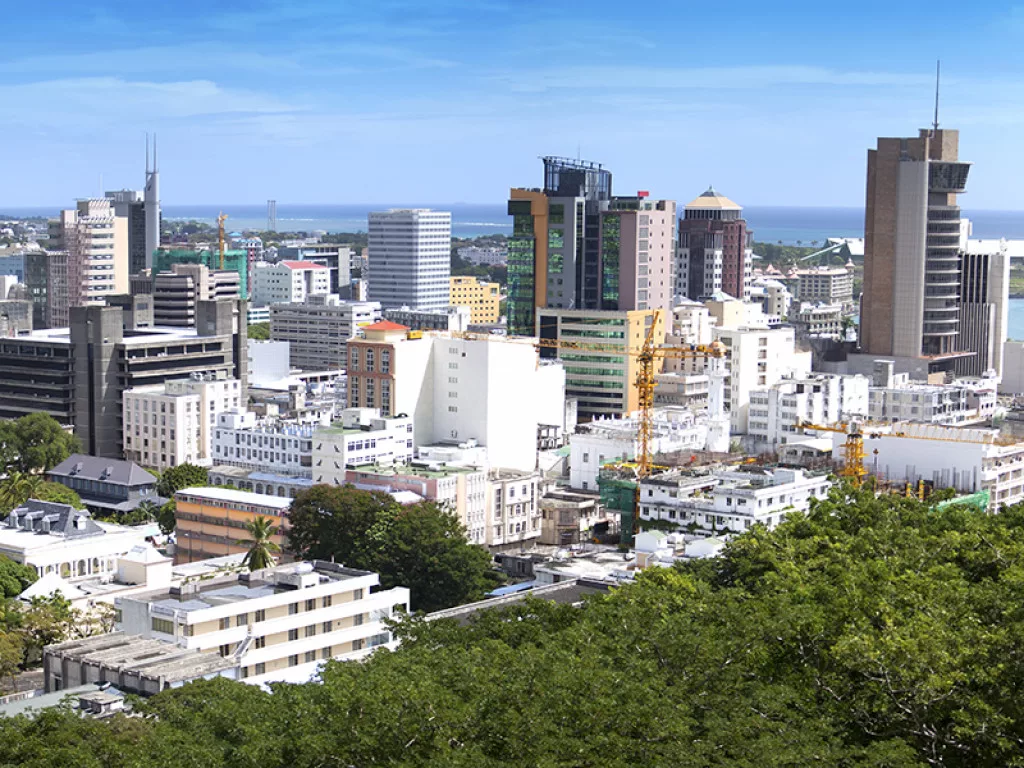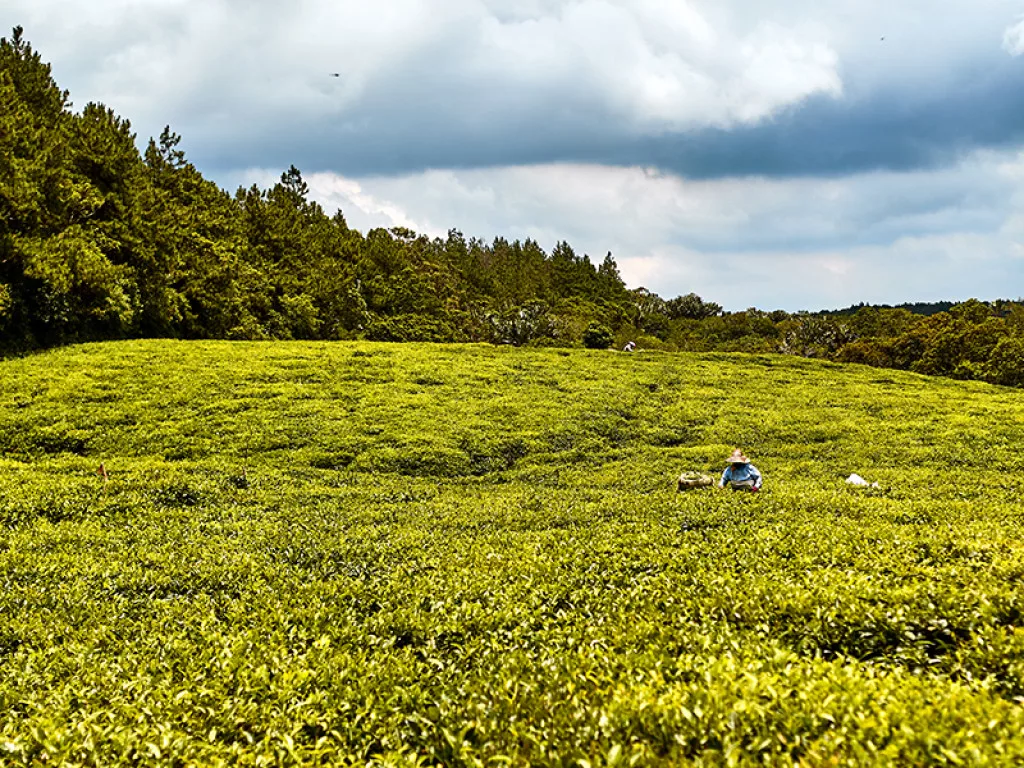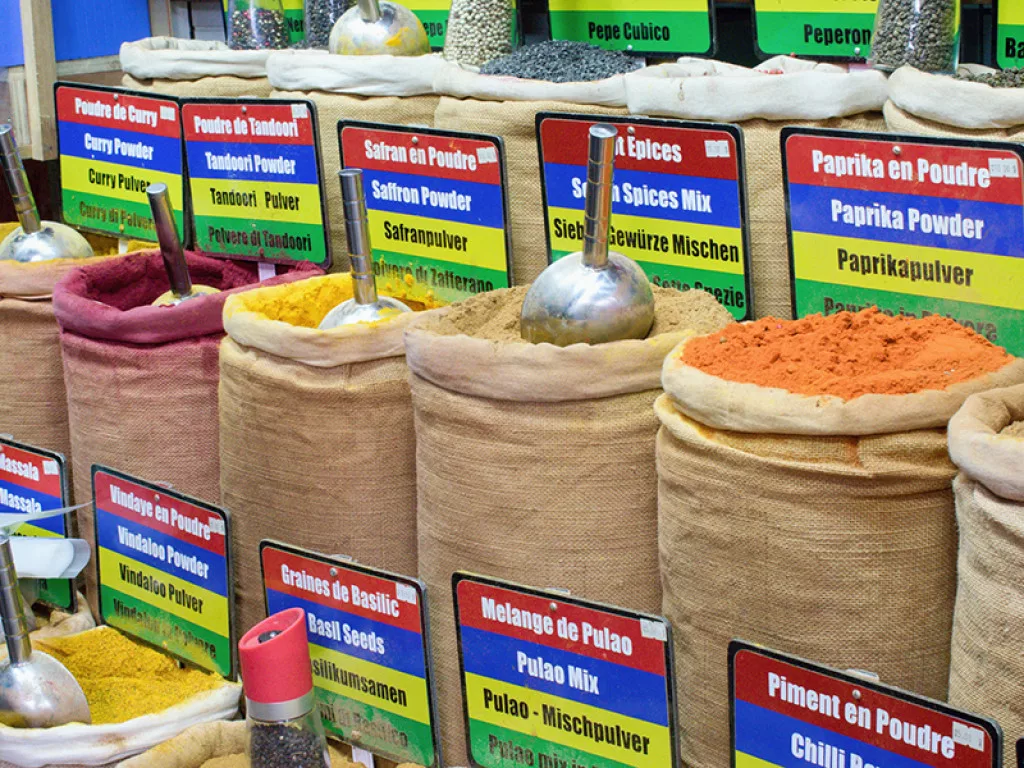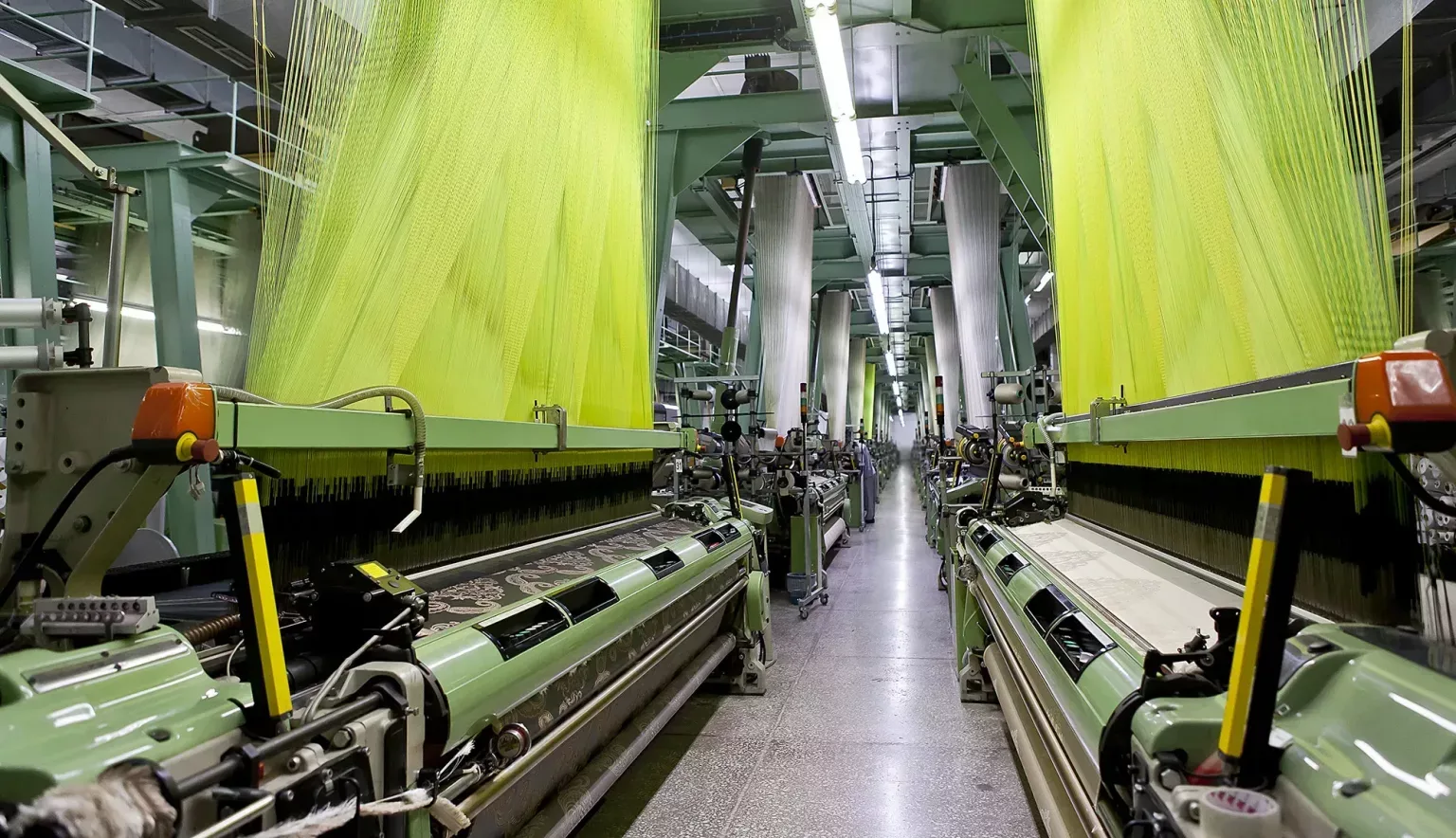Mauritius is committed to transforming its manufacturing sector through attractive fiscal incentives and promoting Mauritian manufacturers.
- INTRODUCTION
- A CHANGING LANDSCAPE
- ATTRACTIVENESS TO INVESTORS
- FACTS & FIGURES
- INTERVIEW: ASSOCIATION OF MAURITIAN MANUFACTURERS (AMM)
- How do you champion locally produced products?
- How do you go about helping Mauritian manufacturers pursue international opportunities?
- What do you find most exciting about the Mauritian manufacturing industry?
- On the flip side, what are its biggest challenges?
- How has COVID-19 affected the manufacturing industry in Mauritius?
- What trends are currently transforming the manufacturing industry? How are you responding to them?
- Have you got any projects in the pipeline you wish to highlight?
- How do you see the Mauritian manufacturing industry developing over the next 5 years?
- KEY PLAYERS
INTRODUCTION
The manufacturing sector is a key contributor to the Mauritian economy.
The sector has traditionally been dominated by textiles and sugar production, with the former considered to be the catalyst of the Mauritian industrial revolution.
Over the past 40 years, the textile industry has spurred economic growth by attracting FDI from overseas; these days, the expertise and agility of the sector position it as a textile hub of excellence within Africa.
A CHANGING LANDSCAPE
The sector for Mauritian manufacturers is becoming increasingly diverse. For example, production of jewellery, optical goods, furniture and electric components has increased.
The manufacturing landscape is also increasingly being shaped by technological advances, changing consumer preferences and digitalisation. Part of the government’s Vision 2030 involves revamping the manufacturing industry through increasing diversification and the adoption of a value-added strategy. It also intends to help stimulate the production of high value-added products (such as jewellery) which have good export potential.
Finally, the government has identified several priority sub-sectors to revitalise, including recycling, food processing, printing and packaging and technical textiles.


ATTRACTIVENESS TO INVESTORS
Mauritius offers an attractive financial package to domestic manufacturing companies – personal tax, corporate tax and VAT harmonised at 15 percent – while the sector has also been helped by the inception of Export Processing Zones (EPZs). Mauritius’ EPZs provide duty-free imports, subsidised utility rates, access to credit and institutional support, which has helped the manufacturing sector to grow and attracted foreign investment.
Mauritius also provides a raft of benefits to international manufacturing businesses wanting to establish a production unit within the country.
These range from an eight-year income holiday for companies manufacturing pharmaceutical products, medical devices and high-tech products to the removal of import duties on equipment and raw materials.
FACTS & FIGURES
Industry type: Secondary
Main product(s): Clothing and textiles, fish, raw cane sugar
Sub-sectors: Textiles, food processing, appliances
Percentage of GDP: 14
Percentage of total exports: 71
Number employed: 150,000 (direct and indirect)

INTERVIEW: ASSOCIATION OF MAURITIAN MANUFACTURERS (AMM)
The Association of Mauritian Manufacturers was set up in 1995 to act as the collective voice of the Mauritian manufacturers. Our members are mainly Domestic Oriented Enterprises.
The AMM supports and defends the interests of local manufacturers, alongside collaborating with the Mauritian Government to develop and adopt a national industrial strategy.
Africa Outlook spoke to Yannis Fayd’herbe, President of AMM, to find out more about this vital organisation.
How do you champion locally produced products?
Yannis Fayd’herbe (YF): There is no better time than this year 2020 to shape the future of our local and regional economies. Celebrating its 25th anniversary this year, the Association of Mauritian Manufacturers is today a forceful voice in the economic environment and is a project-driven organisation fully committed to transforming the manufacturing sector.
With 75 members, the association is particularly proud of the creation of its own label, the “Made in Moris” label (“made in Mauritius” in creole) which today gathers nearly 100 companies, 250 brands and 3000 products.
The “Made in Moris” label promotes local brands and local entrepreneurs, be it a product locally manufactured or a service where the Mauritian identity is developed as a competitive advantage. Through a set of stringent quality criteria, the Made in Moris team works hand in hand with its strategic partner SGS (a global leader in certification) to award its certification to local brands.
How do you go about helping Mauritian manufacturers pursue international opportunities?
YF: The local manufacturing sector is a dynamic ecosystem made up of producers, distributors and suppliers of various products and services on our domestic market. Let’s not forget that this industry contributes to 11.5 percent of the GDP and represents more than 150,000 direct and indirect jobs. Including the export-oriented sectors, manufacturing in Mauritius comprises 14 percent of GDP. Our core mission is to ensure that the manufacturing industry as a whole is still recognised as a key pillar of our economy, with a bright future and with an increased focus on regional (Indian Ocean Countries and Sub-Saharan Africa) and international (Europe, Asia) expansion strategies.
Our focus at the AMM is to develop an ecosystem that is conducive for our members to explore new opportunities and markets beyond Mauritius. Our collective approach brings together companies from different sectors (logistics, financing, insurance, manufacturing, distribution) that will create the best platform for our members to be successful. We have chosen a targeted and tailormade approach which we developed in 2018 and 2019. Our export roadmap was built in various phases, which included two preparatory workshops with our members to test their export readiness and to identify specific target markets.
After this we organised two distinct missions in Kenya: the first mission to explore and discover opportunities in Kenya as a regional hub for East Africa, and a second mission exclusively dedicated to tailor-made B2B meetings. The exploration mission took place in February 2019 and the B2B mission in July 2019. There were 70 B2B meetings spread over seven different business sectors. Unfortunately, the COVID-19 pandemic has impacted on our export endeavours to Africa for 2020 but we are eager to organise the 2021 programme as soon as possible. We will target new markets and new countries in the coming years.
We are particularly proud that the AMM signed the first industrial partnership with its sister organisations from Madagascar and Reunion Island in the Indian Ocean Region, under the aegis of the Agence Française de Développement (AFD) at the end of 2019. We firmly believe that we need to look towards the Indian Ocean and Eastern Africa for growth. We are talking about the regionalisation of our businesses, our sourcing of raw materials, our production and our marketing as an alternative to Asia and the Far East. Besides facilitating mutualised actions such as training, export missions, warehouse facilities and other services, we must tackle some key issues: infrastructure, logistics, financing and trade agreements.
We are undeniably stronger as a regional group.
What do you find most exciting about the Mauritian manufacturing industry?
YF: Today, more than ever, all our stakeholders are increasingly convinced that local sourcing and therefore local manufacturers are becoming increasingly key players in food security, the supply of essential commodities and the sustainability of our economy at large.
Our manufacturers are paving the way for our economic independence. For instance, since the end of the lockdown, we have been working on a public-private collaborative approach on the revival of certain agri-food value chains. 2020 has seen some interesting budgetary measures taken by the government, namely the Buy Mauritian Programme, which is a real boost to the local industry. The government recognises that local purchasing has an important role in the development of the Mauritian economy, either from its existing sectors or the creation of future and emerging sectors.


On the flip side, what are its biggest challenges?
YF: We have been hit hard during the past few years with significant increases in our costs of production through the different social measures taken by the government, while the productivity has lagged behind. The gap is widening between our costs of production and productivity which impacts on our competitiveness.
Moreover, we still observe that local producers are not sufficiently supported in the face of the COVID-19 pandemic. We are still waiting for stronger signals and stricter measures that will stimulate local manufacturing. The current difficult context calls for clearer and faster decision-making.
How has COVID-19 affected the manufacturing industry in Mauritius?
YF: 2020 will undoubtedly remain the year when the importance of the AMM and the relevance of its Made in Moris label have finally taken on its full meaning and are no longer questioned. The COVID-19 pandemic and its sanitary crisis has brought back the urgency to ensure our food self-sufficiency – and AMM and Made in Moris have an essential role to play. Local producers were on the front line to provide the country with basic necessities during the lockdown. Not only did they ensure the production and delivery of food in supermarkets, but they also showed solidarity and supported poor families throughout the lockdown. Our local businesses have also been innovative with the production of sanitary gels, masks and visors.
What trends are currently transforming the manufacturing industry? How are you responding to them?
YF: In the last National Budget, recycling companies have been reclassified as falling within the manufacturing sector. Our aim through our network is to create a conducive ecosystem, associating recyclers with local producers or the agricultural/farming community with the local manufacturers/processors to find a common solution in the national interest. For example, within the AMM itself and the Made in Moris label, you will find a variety of activities ranging from agri-food production to FinTech.
Have you got any projects in the pipeline you wish to highlight?
YF: We are currently collaborating with the Ministry of Industrial Development, SMEs and Cooperatives on an industrial policy and strategic plan for 2020-2025, and with the Ministry of Agro-industry & Food Security on the National Agrifood Development Programme. We are also developing a manufacturing directory together with the Economic Development Board in order to increase visibility for our local producers on international markets. Moreover, we are looking at developing the human capital for the manufacturing sector and have embarked on a bold study about the training needs for the sector, in order to reinforce its sustainability. At regional level, our industrial partnership with ADIR in Reunion island and SIM in Madagascar is being translated in a three-year programme on similar challenges.
How do you see the Mauritian manufacturing industry developing over the next 5 years?
YF: Let’s not forget that Mauritius imported in 2019 the equivalent of Rs 40 billion of food from more than 80 countries. The Made in Moris label conducted a study with more than 2,000 respondents. One fact stands out: 92 percent of Mauritians think it is important to buy products labelled ‘Made in Moris’ and the products on which their purchases focussed during the health crisis are largely made or manufactured locally. If there is a lesson to be learned from this period, it is the need to develop in our local and regional territory, more raw materials that will serve as inputs for our industry.This is the guarantee of increased local and regional added value.
KEY PLAYERS
Electrical & Control Specialists (ECS)
ECS is an innovative and sustainable electrical and automation engineering solutions provider. It is positioned as a local leader in process control and instrumentation, with areas of expertise including electrical engineering and Building Management System (BMS).
Corson Tea has been in operation since 1866, when it began life as a 15-acre family plantation in the highlands of Curepipe. It is known for pioneering tea-drinking in Mauritius. Alongside its long and rich legacy it has modernised with the times, modernising production methods, diversifying its products and keeping up to date with international trends.
Terragri Ltd
Tamak
Indian Oil Mauritius























